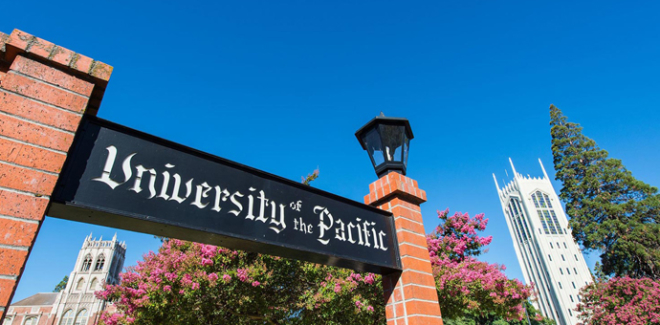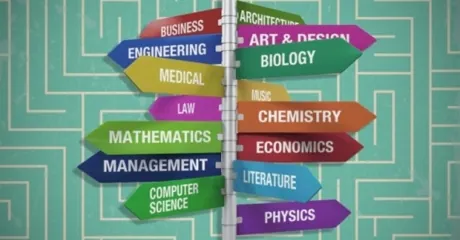Landing at No. 81 in our 2023 rankings this year, the University of the Pacific’s Eberhardt School of Business in Stockton, California, moved down five places from its No. 76 finish in the 2022 rankings. For the three methodological categories, Eberhardt placed No. 88 in Admissions, No. 87 in Career Outcomes, and No. 68 in Academic Experience.The most recent incoming class this year had an average SAT score of 1101, and an acceptance rate of 96.20%.
In terms of career outcomes, 38.50% of the Class of 2023 graduates had at least one business-focused internship before graduating – the same percentage as last year’s Class of 2022. The Class of 2023 also reported the same percentage for career placements as last year – 67.19% accepting a job within three months of graduation.
The Business Administration degree at Eberhardt is a four-year program where students can begin taking business courses as freshmen. The degree has five focus areas in Finance, Management and Human Resources, Business Analytics, Marketing Management, and Sport Management. It also features a Business Administration minor as well as minors in Business Analytics, Leadership, and Management.
MULTI-MILLION DOLLAR STUDENT-RUN INVESTMENT FUND ONE OF THE MOST POPULAR ASPECTS OF THE PROGRAM
One of the most popular signature experiences listed was the Eberhardt Student Investment Fund. Students are accepted into the two-term course through a formal application process. Once accepted, they help manage an investment portfolio that has reached well into the millions in years past. Students manage the fund with the help of an advisory panel including the dean of the B-school.
“The student investment fund was a great experience giving us hands-on learning in the real business world,” one alum said about the experience.
The Eberhardt School offers an intriguing business education option for students looking to be close to the San Francisco Bay Area but avoid the cost of living that goes with it. About 85 miles from San Francisco, Eberhardt alumni had positive feedback of their experience as the school punched above its weight in the alumni survey. Alumni also noted enjoying the smaller school and class sizes.
“Small class sizes were the most beneficial part of the school,” one alum told us. “It was engaging.”
Alumni say:
“I spent every summer as a paid intern at a new company for my entire college career, at times doubling up to also work in our University Development department as a student worker. Work experience was what set me apart from students with academic background. In the business world, experience trumps grades and clubs.”
“I was engaged in the Eberhardt Research Lab with Dr. Chris Sablynski and completed a research project titled ‘Leadership in Higher Education: Taking the Meaning of Leader Beyond the Title.’ This research enabled me to interview leaders in higher education from all different backgrounds, levels of leadership, and a variety of academic and job-related experiences. Through this research, I formed a network of mentors that I still keep in touch with today and whom I now am proud to model my own leadership strategies, as I am in the field of Higher Ed.”
“I was a part of Model United Nations. I applied for and received a Grant through the business school to attend. It was extremely educational and helped support the business principles of negotiation, teamwork, and public speaking.”
“Most upper-level business classes contain projects that can be used in real world applications. As a marketing major, courses would contain projects that either worked on analytics, consumer behavior, or time management. All of these are seen in the business world day-to-day. By working through each class’s curriculum, students are able to get exceptional practice on real world cases.”










